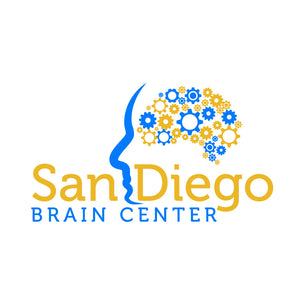Functional Medicine/ Neurology approach to strokes
Posted by Rommel Geronimo on
Most of us have seen the scary after effects of a stroke, one of the leading causes of disability and the third most common cause of death. Though a stroke seems to hit out of nowhere, the truth is that research shows strokes are highly preventable by applying many of the techniques we use in functional neurology. Functional neurology can also significantly boost your recovery from a stroke.
What is a stroke exactly? A stroke happens when an area of the brain doesn’t get any blood or oxygen. This happens because an artery carrying blood to that area either becomes completely blocked or ruptures.
When an area of the brain is cut off from blood and oxygen supply, this can permanently damage and destroy that part of the brain. This explains why people lose function based on which area of the brain was affected, affecting speech, memory, movement, and autonomic function.
How you can prevent a stroke
In order to prevent a stroke, we have to understand what the typical causes are. Studies have found the following factors can trigger stroke. These are among the same factors we address in functional neurology when working to rehabilitate brain function in general.
- High blood pressure is the strongest risk factor for stroke.
- Smoking doubles stroke risk.
- A bad diet raises the risk by 30 percent.
- Exercising at least four hours a week lowers your risk by 30 percent.
- As little as one alcoholic drink a day raises your risk by 50 percent.
- Stress, depression.
- Diabetes.
- Excess belly fat.
- Cardiovascular disorders.
Functional neurology stroke prevention strategies
The strategies to prevent stroke are the same ones we use to help people boost and repair their brain health to address a variety of brain-related disorders.
Healthy, whole foods diet with lots of veggies. Ditching the sugars, sodas, junk foods, and fast foods and focusing on whole foods, lots of vegetables, and healthy fats nourish the brain and its arteries instead of harming them.
Stable blood sugar. Balancing blood sugar is foundational to all aspects of brain health, including stroke prevention and rehabilitation. High blood sugar inflames the brain and hardens and clogs the arteries, which can lead to stroke. The proof? People with Type 2 diabetes are up to four times more likely to have a stroke.
Regular exercise. There are few magic bullets in life, but regular exercise comes close. Exercise keep blood vessels healthy and open and boosts blood flow to the brain. Regular exercise has also been shown to lessen the severity of a stroke and improve recovery.
Custom supplementation. Targeted high-quality supplements that help support the arteries, stabilize blood pressure, improve circulation to the brain, dampen inflammation, and balance blood sugar can all help lower your risk of stroke or help you better recover.
Functional neurology rehabilitation. We use functional neurology exam techniques to identify areas of the brain affected by stroke and how to customize rehabilitation. We activate specific areas at and around the damage based on exam findings, and can measure progress, from subtle to obvious, and adjust treatment as necessary. We work within your brain endurance so as not to “fry” your brain and exhaust you while developing neuroplasticity, the brain’s remarkable ability to create new neural connections.
Ask my office how we can help you lower your risk of stroke and support your brain health.
